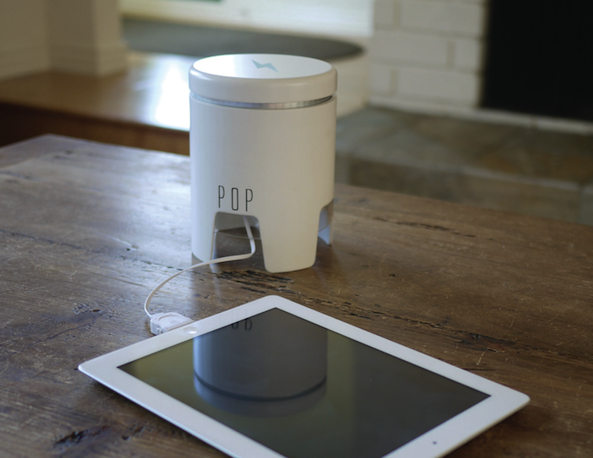Back in September, things were going pretty good for the folks at Edison Junior. Their Kickstarter project POP, a portable power station, was a huge success, raising more than $100,000. And they were hoping to start shipping the accessory by early December.
But unfortunately, instead of mailing out POPs to their backers this month, Edison Junior is trying to figure out how to not go broke returning everyone’s money. It seems that Apple has rejected their application for a Lightning certificate, forcing them to shut down…
The POP, which was marketed as “The Intersection of Charging and Design,” was a portable charger that housed several charging cables, including a Lightning connector, the old 30-pin plug, and a micro-USB connector for charging Android and other non-Apple devices.
And this appears to be what Apple had a problem with. Apparently, in accordance with its new MFi (Made for iPhone) terms, Apple will not approve a product that uses a Lightning cable alongside any other charging cable — and yes, that even includes its own 30-pin connector.
Edison Junior’s CEO Jamie Siminoff spoke to VentureBeat (via MacRumors) about the whole ordeal:
“We are pissed. I think they are being a bunch of assholes, and I think they’re hurting their customers…
…When Apple officially announced the move to Lightning we determined the best course of action was to incorporate two Lightning chargers, and two 30-pins (along with the four micro-USB’s). After applying to Apple (which is now required for Lightning), we learned that they are no longer willing to approve a product that uses the Lightning charger alongside any other charger (including their own 30-pin – seriously). Just like that, POP could no longer fulfill its true promise.”
Edison Junior is going to provide full refunds to all of its 1,000+ backers, who pledged a total of $139,170. But they’re not going to come out of this scott free — the company still owes some $11,000 in Kickstarter and credit card fees, which they’ll have to pay for out of pocket.
This isn’t the last we’ve heard of the POP, though. Siminoff says that his team will be re-focusing its efforts on a device that supports Android phones and tablets, as well as Apple products, as folks don’t mind using a Lightning-to-USB adapter, or an older 30-pin connector.
Ouch. What do you think about all of this? Was Apple out of line here?
